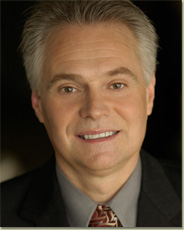Jeff Bezos on Company culture (from Change or Die -Alan Deutschman)
In 1995 Bezos was first building up Amazon. His colleagues brought in job candidate after job candidate. Bezos refused to hire any of them, even though the company was desperately short -staffed and growing exponentially. Bezos knew that he wanted people who were frugal, resourceful, who loved to analyze information, try new things and take big risks, like himself. It was ridiculously difficult to get a job there in the earliest days. After he hired the first few dozen people they established a culture that was self-perpetuating. (Then he could let others do the hiring. )The early personalities established a cultural DNA , a replicating genetic code. Newcomers would come to a place that had its own well-defined set values, beliefs, practises, skills, quirks, and even delusions. They would then model their behavior on people around them, becoming either a good fit or choosing to leave. Bezos says,” Cultures evolve from that early set of people. Once it is formed it tends to become extremely stable, it stays around. It ends up building on itself”.
Lesson learned would be for you to look around your company to “see, hear and feel” your culture that has grown from those early days/hires. If you want to change the culture, its again all about the people you bring in. In the early days its all up to you. And Speed kills.
Category: Leadership
David Maister Podcast. What kind of provider are you?
I was listening to David Maister this AM . The 20 minute Pod-cast “What Kind of Provider are You”which comes from a chapter in his book “True Professionalism.” (reviewed in my archives) His comments are very telling to anyone who has a service component to his business. David explains that there are four types of providers, Pharmacists, Nurses, Brain Surgeons, and Physicians. Pharmacists sell their aspirin ( methods and processes) to clients who want a standard fix at the “best price”. Nurses bring aspirin with counselling skills to clients who want a relationship. Brain Surgeons sell brilliance to clients who want to wake up “fixed”. Physicians sell a step by step involvement with the patient to bring them to a better state.
Pharmacists need to develop terrific execution with leveraged staff. Nurses develop deep relationship skills, Brain surgeons must select which clients need and can pay for their creativity and brilliance. Physicians need to build incredible patience into their methods. Maister believes that the market wants pharmacists to be more like nurses and brain surgeons to be more like physicians. Profits (and leverage, scalability) are greatest for pharmacists and become less so as you move through the model. Physicians need to know when to refer to others, else they can never scale. You can find the pod-cast at http://davidmaister.com/podcasts.archives/5/60/
Maister feels that many companies make the mistake of not knowing what type of provider they are. Those that do figure it out do very much better. Now if you take that view and add it to Trouts’ clarity wrto Focus (reviewed yesterday) this makes a lot of sense. In our practise we see all to often clients pulled in many directions to Sunday and in the process, working very hard but not making the progress they expect.
Category: Management


